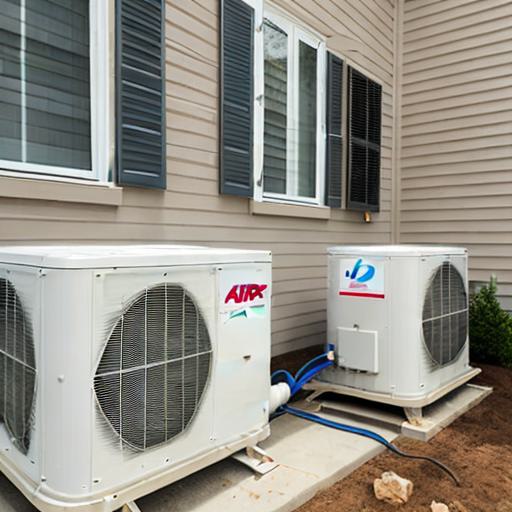The installation of an air conditioning system is a complex process that is best done by a qualified HVAC professional. Some of the factors you need to consider when installing an air conditioner include the size, type, location, and electrical requirements of the unit. Without the right experience, skills, and tools, you may have a difficult time getting your air conditioning unit operating as per the manufacturer’s recommendation. A qualified HVAC professional has the experience and expertise to properly install your air conditioning unit and ensure it works properly and efficiently.
The steps of installing an air conditioning unit
- Evaluation and removal of your old system
Before a new air conditioner is installed, the old system needs to be safely removed to pave the way for the new one. A qualified HVAC professional will be careful enough not to damage the surrounding area when removing your old air conditioning unit. The installer will perform a thorough evaluation of the existing cooling infrastructure to identify any sources of air duct leaks or rising issues that could affect the performance of the new system. The HVAC professional will then notify you of any repairs that are needed at this point before they can address them.

- Installing the new air conditioning unit
The installation of your new air conditioner begins once the old system has been successfully removed. The process of installing a new HVAC system can be very challenging, especially if you are working with a model that is slightly different from your old conditioning unit. It may require new electrical connections, new piping, and ductwork connections based on whether the hookups of the new and old air conditioners are the same. The HVAC expert will add a refrigerant as per the manufacturer’s specifications and check all electrical connections before testing the new system so you can start using it as soon as possible.
- Inspecting or installing your thermostat
New air conditioning systems are designed with the latest thermostat versions that can be installed at the same time as the rest of the unit. You can also keep your existing thermostat if your HVAC professional can establish a satisfactory connection between your thermostat and the new air conditioning unit. If you don’t have a separate thermostat system, you can schedule a future service with your HVAC professional so it can be installed at a later date. Your installer can provide a detailed explanation about how to install a new thermostat and give you instructions or demonstrate how to navigate the thermostat controls.
- Final check and maintenance
Your technician will perform a final check once after installing your air conditioning system. They can also take you through basic maintenance tasks that you can handle by yourself and how often you should complete these tasks. Your HVAC professional can also provide you with answers to any additional questions you may have during or after the installation is complete. If you don’t have time to conduct the basic maintenance tasks, you can always rely on a reputable AC maintenance service to handle it for you.
- Why you shouldn’t install an air conditioning unit by yourself
Air conditioning units contain refrigerants which can be harmful to the environment if not handled properly. Connecting the refrigerant lines also requires special tools and knowledge which can be quite challenging when you don’t have any experience. Installing the unit at the wrong location not only leads to poor performance but could also damage your home. Air conditioning units require electrical connections that could cause an electrical fire if you are not familiar with electrical work. You could also injure yourself while lifting or moving the unit incorrectly.
Another reason why it is not a good idea to install an air conditioning unit by yourself is that you may void the warranty if the unit isn’t installed by a professional. In case anything goes wrong when installing it yourself, you won’t be able to replace or repair the air conditioning unit under warranty. You also put others at risk of inhaling fumes from refrigerants if you don’t know the safety procedures for handling an AC unit during installation.
It is always a good idea to hire a qualified HVAC professional to install your air conditioning unit. They have years of experience and expert knowledge on how to get the job right every time. This ensures your unit works properly and efficiently for many years without the need for unnecessary repairs or replacements. Having the unit installed by an HVAC professional also keeps your warranty valid if anything goes wrong after installation.
